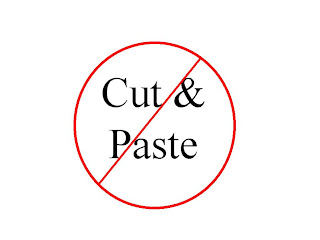Friday, January 14, 2011 - Speaker Notes
Dr. Sam
11,031 student enrolled 1/13/11
24 million in financial aid
Tutoring 11,671 visits
Mr. Delatorro McNeal
Inner G - Gratitude. He makes a list every morning of gratitude items.
Celebrate yourself - the rest of your life is the best of your life
You'll crash if you focu on your rearview mirror
The best is inside - All success is an inside-out job
It's easy to better your best because your best is based on your past
Your "network" determines your net worth so ask who is mentoring & coaching youAchieving the Dream = Think=Minds; Believe=Hearts; Do=ActionPower Principle #1 Step-Up Your Attitude
1) Change your thinking change your life - we don't dislike change, we just dislike change that's inconveinient at the time.
2) Crisis = a dangerous opportunity,
3) Applied knowledge is power and information w/o application only leads to frustration.4) Win/Lose is wrong attitude. Think Win/Learn as we learn through loss.5) Don't attach negativity to actions of the brain will avoid them
6) Cause vs. Effect. Choice is yours, Just because its happening in the world doesn't mean it will happen in your world, i.e. economic downturn
7) Design vs. Default - Your friends are God's way of apologizing for your family. Put intelligent & goal oriented people in your life on purpose. Put people in your life who aren't satisfied with your present so you will be challenged.
8) Abundance vs. Scarcity - be very careful who you tell your good news with - people who pour ice water on your ideas and aren't happy for you aren't good. Start being more abundant mentally, as you will attract that to yourself.
My mind is like fertile farmland. It's only job is to harvest whatever I plant.9) Honey vs. Kryptonite - all attitudes are contagious. Is your worth catching? Film actor, Denzel Washington (?) when asked which was his best film - My best one is my next one.Power Principle #2 - Step up your VisionA vision is something that has you. When you blue sky, what do you see? See something more powerful than what meets the eye. Television tells a lie to your vision, not happy with what you have what have is never enouh.
Power Principle #3 - Step-Up Leadership
Vulture = waiting for negativeChicken - flies 4 feet off ground only (not an eagle)Turkey - talk good but do nothing but gobbleParrot - copy cat and mimic and not originalEagles - fly alone or with other eagles and odn't sacrifice attitude to fly lower with othersFinal Thoughts -
Always do more than you're paid to do - not always moey but your character that is important.
Think Profoundly
Believe Sincerely
Do Consistently
Connecting Mind and Body for Healthy Living
Presenter ComPsych
- Exercise more strenuosly to get more endorphins
- Establish an exercise pattern, i.e. after breakfast or before lunch 10-11:00-Mon/Wed/Fri
- Tense your body and then relax it, i.e. think about something distressing to you and notice the distress felt in the body. Stand up and clench your fists and shrug your shouders, etc. No let go. Breathe deeply and allow your muscles to relax completely. Repeat.
- Get 7-9 hours sleep and have a regular routine
- Eat things with Omega-3 fatty acids, walnuts and fish, etc.
- Do something quickly to elevate your mood, i.e. count quickly, run somewhere
Applications
- Work hard as an example in the library
- Deepen connections - stop undue socializing/banal conversation and learn to ask questions that go deeper
- Throw off perfectionism
- Work through Markus Buckingham Strengths Finder materials
- Fnd people and friends that challenge me - who is mentoring & coaching me

.jpg)

